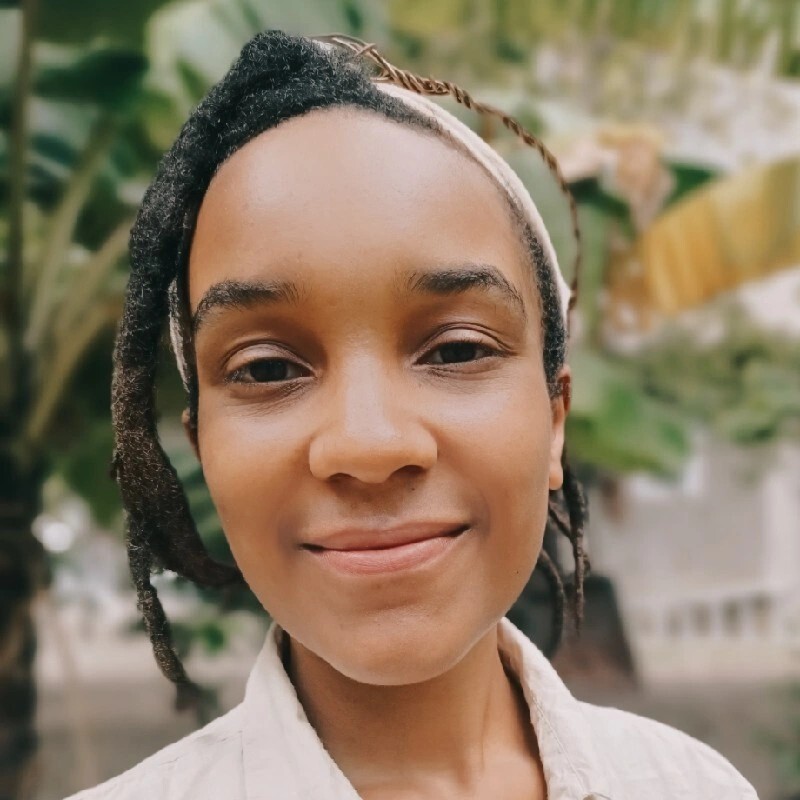Storytelling as a radical act
Black Storytelling Week is being developed by a coalition of Black storytellers, community builders, creatives and healers. Working with an abundance mindset and collectivist principles, we are building this for the African diaspora, its people, and many cultures.
About
Who we are
In the mosaic of time, we represent the next generation of culture keepers. We are a collective of community builders, storytellers, creatives, and healers. As culture shifters and futurists, we preserve the sanctity of Black storytelling.
What we do
We unearth the deep wells of oral tradition as a conduit to our ancestral wisdom. By conceiving fresh rituals and traditions, we kindle intergenerational healing and connections.
Why we do it
Our love for Black people is boundless; our desire - a world where every Black soul knows freedom. We construct pathways, knitting together hearts from all corners of the diaspora. We affirm the vast tapestry of Black life, identities, abilities, and families. We all belong.
How we do it
Our strength lies in community: we embody the harmony that once defined our existence. Shunning solitary ownership, we celebrate shared stewardship. We operate with mindful intent, attuned to our wellness, trust, and inherent capacities. We don’t claim mastery, but rather curiosity and collaboration.
Our Founding Members
Our coalition is a temporary alliance between people and entities to achieve the Black Storytelling Week purpose. Our intent is for this to be a multi-year collective that can dissolve once we've achieved our mutually agreed-upon goals.
If you would like to learn more about the coalition or explore joining, get in touch

Martina Abrahams
Cultural Storyteller, Builder
Martina Abrahams Ilunga is a storyteller, community builder and creative entrepreneur reimagining the timeless art of oral tradition and the founder of the storytelling studio You Had Me at Black .
.png)
Ashlin Randolph
Educator, Writer
Ashlin Randolph is an educator, writer, and MSW & Ph.D Student committed to dissecting the roles education, art, and mental health play in implementing traditions within diverse communities.

Bryce Carrington
Designer, Archivist
Bryce Carrington is a designer & art director interested in perserving Black aesthetic and visual language in order to reimagine Black futures.

Mesq'al Kebra
Entrepreneur
Mesq'al Kebra is an Entrepreneur and Executive Virtual Assistant providing clients specially crafted business development services while curating unparalleled wellness-centered experiences through her business Portals of Samadhi.
FAQs
Black Storytelling Week is a new annual holiday for celebrating oral tradition. Each year, during the second week of September, we encourage every Black family to spend one hour sharing their family history. The purpose of the holiday is to rebuild a culture of sharing stories and history across generations - and in doing so, inspire connection and healing within Black families across the world.
The purpose of the holiday is to encourage To get members of our communities, our families, and our villages to come together and revel in the power of our own personal legacies through stories of our triumphs and tribulations, & everyday

Black Storytelling Week is the second week of September. In 2023, that’s September 10th – 16th.

Before books, films, and podcasts, our culture and history were passed down through oral tradition. From stories, and music, to recipes and remedies for wellness and survival, the spoken word was a format we revered and held sacred. This holiday reimagines oral tradition as a means to preserve our cultures, reclaim how we teach them, and ensure they live on for years to come.
Sharing our family stories promotes a sense of unity and shared stewardship. Making a habit of holding these kinds of conversations can bridge gaps between different generations and also inspire future ones to continue the legacy of our families and communities.
Storytelling reinforces a unified identity and sense of belonging. It helps ensure our languages are spoken and heard. And when written records are lost due to technological failures, natural disasters, or conflicts, oral tradition can continue on, uninhibited.

This holiday is for us. Those of us who identify as Black, African, Afro-Anything.
This holiday is for Black people, and those who raise, love on, nurture, and care for us. It’s as simple as that. Whether you are adopted, or your family is biological, or chosen, this holiday honors and celebrates the many ways we make family and are family. Whoever you consider loved ones is who you are meant to celebrate this holiday with.
This holiday is also for Black folks who have been adopted by non Black people. You are a part of this legacy, too.

Before: Mark your calendar or the second week of September (10-16), and sign up to be one of the first 1000 families to celebrate
During: Between September 10 and 16, use our guide for holding family history conversations.
After: Let us know how it went. Your reflections and feedback will let us know what resources family will need to feel supported and continue this tradition.

We recognize that family relationships can vary greatly. If you're adopted or distanced from your biological family, don't worry. We are exploring partnerships with communities and organizations

Black Storytelling Week was created by a coalition of Black storytellers, community builders, creatives and healers. With an abundance mindset and through collectivist principles, we are developing this holiday for the African diaspora, its people, and many cultures.
Our purpose as a coalition is to build a culture around intergenerational story exchange and preserve Black diasporic history. Our priority is to ensure that all kinds of families, and people of all circumstances, identities, and intersections can participate. Finally, using a trauma-informed approach, we are committed to guiding families through their Black Storytelling Week experiences with care. Interested in joining us? Get in touch.

